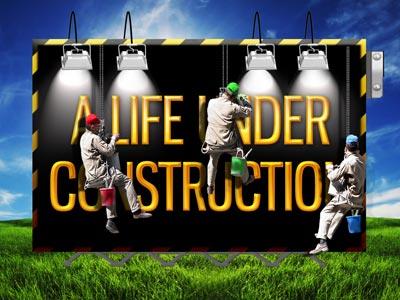-
A Hard Message Of Change
Contributed by John Bright on Jan 4, 2021 (message contributor)
Summary: Sermon for the first Sunday of 2021
“A Hard Message of Change”
Luke 3:7-9
A sermon for 1/3/21
Pastor John Bright
Luke 3 “7 Then he said to the multitudes that came out to be baptized by him, “Brood of vipers! Who warned you to flee from the wrath to come? 8 Therefore bear fruits worthy of repentance, and do not begin to say to yourselves, ‘We have Abraham as our father.’ For I say to you that God is able to raise up children to Abraham from these stones. 9 And even now the ax is laid to the root of the trees. Therefore every tree which does not bear good fruit is cut down and thrown into the fire.”
How many of you are hoping 2021 is nothing like 2020?
So often, we want the circumstances to change – get better – to make us happy… but what about the change within you and me that is needed? When it’s me that needs to change, I want it to be as easy as possible. You, too?
Have you ever noticed those ads for weight loss supplements? They say something like, “no exercise or special diets” or “the pounds and inches just melt away while you sleep.” YEAH…RIGHT! I found some New Year’s resolutions like that:
• “I was going to quit all my bad habits this year – then I realized nobody like a quitter.”
• “This year I will stop procrastinating. Or maybe next year.”
• “This year I will start saving money for a rainy day – that way I can order on line and stay dry.”
• “After thinking about all my bad habits I need to give up – I resolved to give up thinking about them.” 😊
We are back in Luke this week after looking at the cast of characters on the Night of Nativity. Chapter 2 follows Jesus as a child. He is named and circumcised on the eighth day. After 40 days, he is taken to the Temple in Jerusalem where Simeon and Anna proclaim the infant to be the Savior. At age 12, Jesus returns to the Temple and astounds the religious teachers with His wisdom.
In Chapter 3, we find a grown-up John the Baptizer – “3 And he went into all the region around the Jordan, preaching a baptism of repentance for the remission of sins.” Verses 1-2 place John’s ministry at 28-29 AD. Luke also gives us the clear picture of John as the fulfillment of God’s promise in Isaiah 40. In the Jewish tradition, we find that baptism is a form of ritual cleansing – most often the cleaning of hands and feet. When it involves full body immersion, called mikveh in Hebrew, the best place is the “living water” that can be found in a river. This Hebrew word also has the meaning of waiting/preparation. This helps us to understand why Jews would come from the towns and villages to a deserted place along the Jordan River for “a baptism of repentance for the remission of sins.”
John begins with a warning – v. 7
“Then he said to the multitudes that came out to be baptized by him, “Brood of vipers! Who warned you to flee from the wrath to come?”
In this desert region, snakes lived in holes in the ground. If a fire broke out, the rising temperatures of the ground would alert the snakes to flee. When John compares them to these snakes, he is not referring to a brush fire in the wilderness. Can I be really clear here – he was warning them that each of them could end up in hell! “9 And even now the ax is laid to the root of the trees. Therefore every tree which does not bear good fruit is cut down and thrown into the fire.”
Today, it may be unpopular, but we still need to give a warning.
Let me share part of an article I found at the GotQuestions.org website:
“It is interesting that a much higher percentage of people believe in the existence of heaven than believe in the existence of hell. According to the Bible, though, hell is just as real as heaven. The Bible clearly and explicitly teaches that hell is a real place to which the wicked/unbelieving are sent after death. We have all sinned against God (Romans 3:23). The just punishment for that sin is death (Romans 6:23). Since all of our sin is ultimately against God (Psalm 51:4), and since God is an infinite and eternal Being, the punishment for sin, death, must also be infinite and eternal. Hell is this infinite and eternal death which we have earned because of our sin.”
“The punishment of the wicked dead in hell is described throughout Scripture as “eternal fire” (Matthew 25:41), “unquenchable fire” (Matthew 3:12), “shame and everlasting contempt” (Daniel 12:2), a place where “the fire is not quenched” (Mark 9:44-49), a place of “torment” and “fire” (Luke 16:23-24), “everlasting destruction” (2 Thessalonians 1:9), a place where “the smoke of torment rises forever and ever” (Revelation 14:10-11), and a “lake of burning sulfur” where the wicked are “tormented day and night forever and ever” (Revelation 20:10).”

 Sermon Central
Sermon Central



